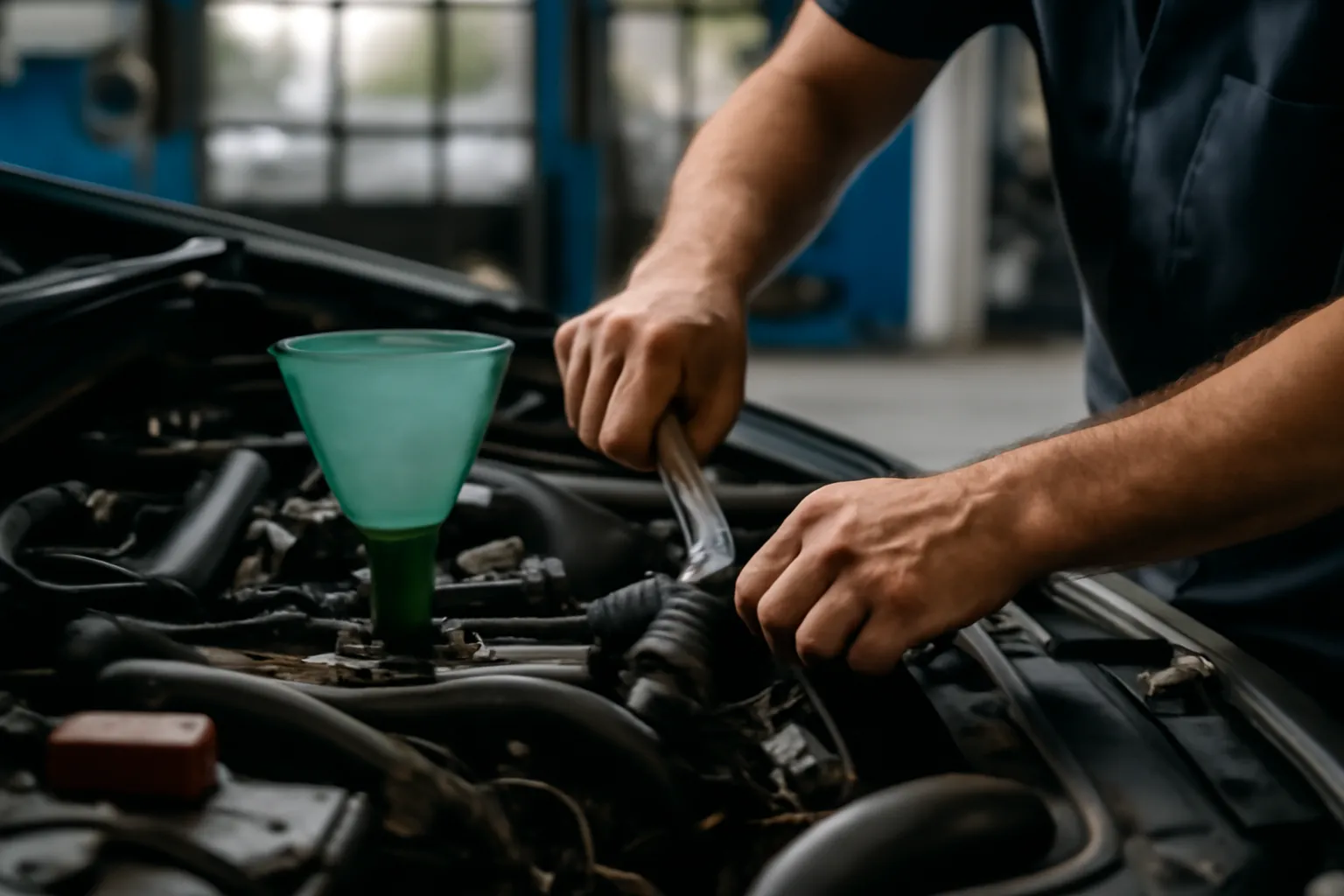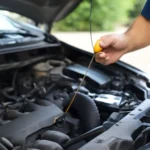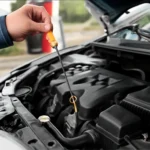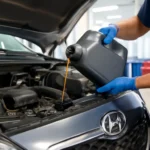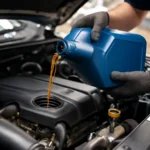Ever wondered when engine oil becomes a problem? Learn how to handle issues such as engine oil consumption, leaks, and overfilling. Are you ready to tackle your car’s oil troubles?
Engine oil is the lifeblood of any vehicle’s engine, maintaining smooth operation and preventing internal wear. However, issues with engine oil are not uncommon and can lead to more severe engine problems if left untreated. Whether you’re dealing with engine oil consumption, leaks, or even overfilling, knowing when and how to address these concerns is essential for the health of your vehicle.
In this guide, we’ll discuss common issues related to engine oil: when oil consumption becomes a problem, the causes and solutions for leaks, and the risks of too much oil in your engine. Understanding these scenarios will help ensure that your engine runs efficiently and lasts longer.
When Engine Oil Consumption Becomes a Problem
Engine oil consumption refers to the process where your car’s engine uses oil faster than usual. This is a common issue, especially as cars age, and it can lead to engine damage if not addressed.
Why It Happens
-
Worn Piston Rings: Over time, the piston rings that help seal the combustion chamber can wear out. This allows oil to seep into the combustion chamber and burn off along with fuel, causing increased oil consumption.
-
Valve Seal Wear: The valve seals are responsible for preventing oil from leaking into the combustion chambers. As these seals wear down, oil can leak into the engine and burn off, increasing oil usage.
-
High Mileage: Older engines tend to consume oil more quickly, especially if regular maintenance hasn’t been performed.
How to Deal With It
-
Check for Leaks: Before assuming your engine is burning oil, check for oil leaks. If oil is leaking from the engine, topping up your oil might be a temporary fix, but the leak will need to be repaired.
-
Switch to High Mileage Oil: High mileage oils are formulated with additives that help prevent leaks and reduce oil consumption.
-
Monitor Oil Levels: Regularly checking your oil levels will help you detect excessive consumption early on and prevent engine damage.
Pro Tip: If you’re seeing a drop in oil levels without seeing any leaks, it’s a good idea to have the engine inspected for potential internal oil consumption issues.
👉Learn more about engine oil consumption👈
When Engine Oil Leaks: What to Know
Engine oil leaks are one of the most common problems car owners face. If your car is losing oil, it’s crucial to find the source of the leak and repair it promptly.
Causes of Engine Oil Leaks
-
Damaged Gaskets and Seals: Over time, gaskets and seals around the engine can crack or wear out, leading to oil leaks.
-
Loose Oil Filter or Drain Plug: If the oil filter or drain plug isn’t tightened properly, oil can leak out of these areas.
-
Cracked Oil Pan: The oil pan can get damaged from road debris or wear over time, causing oil to leak.
-
Overfilled Engine Oil: Too much oil can put pressure on the seals, causing them to rupture and lead to leaks.
How to Fix Oil Leaks
-
Tighten the Oil Filter and Drain Plug: If these parts are loose, they can be the cause of the leak. Tighten them to ensure no oil escapes.
-
Inspect and Replace Gaskets/Seals: If gaskets or seals are damaged, they should be replaced to prevent further leaks.
-
Check the Oil Pan: A cracked oil pan should be replaced or patched as needed.
Pro Tip: If your car is leaking oil, it’s vital to act quickly to prevent running the engine without sufficient oil, which could lead to severe damage.
What Happens If There’s Too Much Engine Oil?
While many are aware of the dangers of running an engine with too little oil, overfilling can be just as harmful.
Why Overfilling Oil Is Dangerous
-
Aeration: When there’s too much oil, the crankshaft can cause it to foam. This reduces the oil’s ability to lubricate effectively, leading to increased engine wear.
-
Increased Pressure: Too much oil can create excess pressure within the engine, which could cause seals and gaskets to fail, leading to leaks or even catastrophic engine failure.
-
Exhaust Problems: Excess oil can end up in the exhaust system, leading to harmful emissions and smoke.
How to Fix Overfilled Oil
-
Drain the Excess Oil: If you’ve accidentally overfilled your oil, the excess should be drained. You can do this at home or visit a professional mechanic for the job.
-
Check Oil Level Regularly: Always check your oil levels after adding oil to ensure that you’re not exceeding the recommended amount.
Pro Tip: Follow your car’s owner’s manual to ensure you’re always adding the correct amount of oil. Most engines only need about 4-5 quarts, depending on the vehicle.
👉Learn how to fix overfilled engine oil👈
Conclusion
Understanding engine oil issues is vital for maintaining your car’s engine health. Whether it’s oil consumption, leaks, or overfilling, these issues can lead to severe damage if left unaddressed. Regular maintenance, including checking oil levels and addressing leaks early, can help extend the life of your vehicle and prevent costly repairs.
As the famous saying goes, “An ounce of prevention is worth a pound of cure.” Take care of your car’s engine oil, and it will take care of you on the road for years to come.

